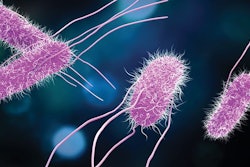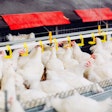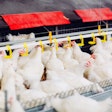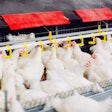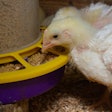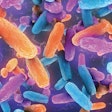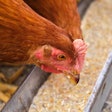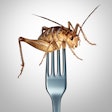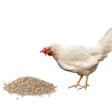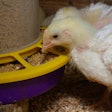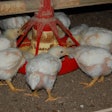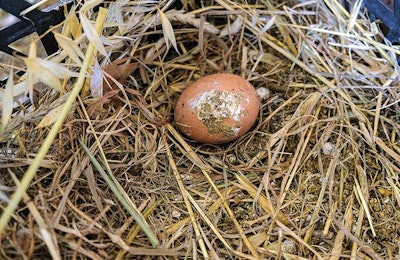
Clean eggshells can most easily be achieved through the management of layer nutrition and gut health. Feedstuff selection is critical to attaining this goal.
If dirty eggs are to be kept to a minimum, it is crucial that any anti-nutritional factors, toxins or contaminants contained in feed that can lead to nutritional imbalances, intestinal disease and reduced overall bird health are identified and addressed.
Manage fiber
The amount and type of fiber in feed impacts gut performance.
Soluble fiber, for example, is difficult to digest due to its high non-starch polysaccharide (NSP) content. NSPs can increase gut viscosity and hold a large amount of water leading to elevated excreta moisture content, sticky droppings and dirty eggs.
Barley, rye, wheat or triticale all have higher levels of NSPs than sorghum or corn. However, supplementing the fiber with high NSPs with enzymes, for example β-glucanases and xylanases, improves the nutrient value of diets and helps in overcoming watery or sticky droppings.
Insoluble fiber also has proven benefits as it has an abrasive effect in the gut, enhancing nutrient digestion and improving gut health. Fibrous ingredients with a high-water absorbing capacity should, therefore, be incorporated into the feed.
Particle size impacts performance
Flocks benefit from being fed with larger, coarse particles as they develop larger and more muscular gizzards and longer intestinal tracts.
The increased retention time also stimulates a drop in pH, which has a bactericidal effect. Larger feed particles have a longer transit time through the gut, which improves the length of microvilli and increases the absorptive surface area in the intestine, improving digestibility and nutrient absorption.
Control protein intake
Care must be taken with protein levels as any excess leads to increased nitrogen excretion which negatively impacts bird health and the environment.
The portion of amino acids and non-amino acid nitrogen not digested in the digestive tract acts as a substrate for microbes that can generate toxins. This dysbiosis can, in some cases, lead to necrotic enteritis.
It is also important to determine biogenic amines (BAs) in feed ingredients, such as fish meal or animal byproducts, as this helps to evaluate the quality and degree of spoilage of the material before the production of feeds. In addition, an association between the BA content and the bacterial load in the feed should be made.
Consider probiotics
Beneficial bacteria must be part of the gut environment.
Probiotics have proved to be an easy way to positively influence microbial populations in the intestine. Probiotics are live micro organisms which can alter the dynamics of the gut microflora, improving layer performance and health through the combination of various mechanisms of actions.
Not only is the gut the major organ for nutrient digestion and absorption, it also works as the first protective mechanism to exogenous pathogens. When the gut function is impacted by pathogens, there is not only an immunological response but also a change in passage rate, digestion, mucin secretion, and an increase in turnover rates of the intestinal epithelium.
Reduced feed intake results in a higher maintenance requirement with diversion of nutrients to bolster the immune system. Energy and nutrients expended to mount a strong enough immune response to defeat disease, because of a disturbed microbial ecosystem, reduce absorption and digestion of nutrients (increased feed conversion ratio), overstimulating the immune system and therefore triggering enteritis and noticeable performance losses.
Multifaceted issue
The dirty eggs issue is multifaceted. However, to a large extent the problem can be ameliorated by using low-NSP grains or NSP enzyme supplementation in the diet; increasing the use of insoluble fiber; using low protein feeds with correctly balanced amino acid profile and restricting the use of animal byproducts to minimize the risk of high content of biogenic amines.
Finally, the addition of probiotics can balance the gut environment by excluding pathogens and supporting the most important organ in the hen, enhancing productivity and helping to ensure clean eggs.

Carefully managing hen nutrition can significantly reduce dirty egg incidence. Evonik P_galasso2289 | Shutterstock.com


